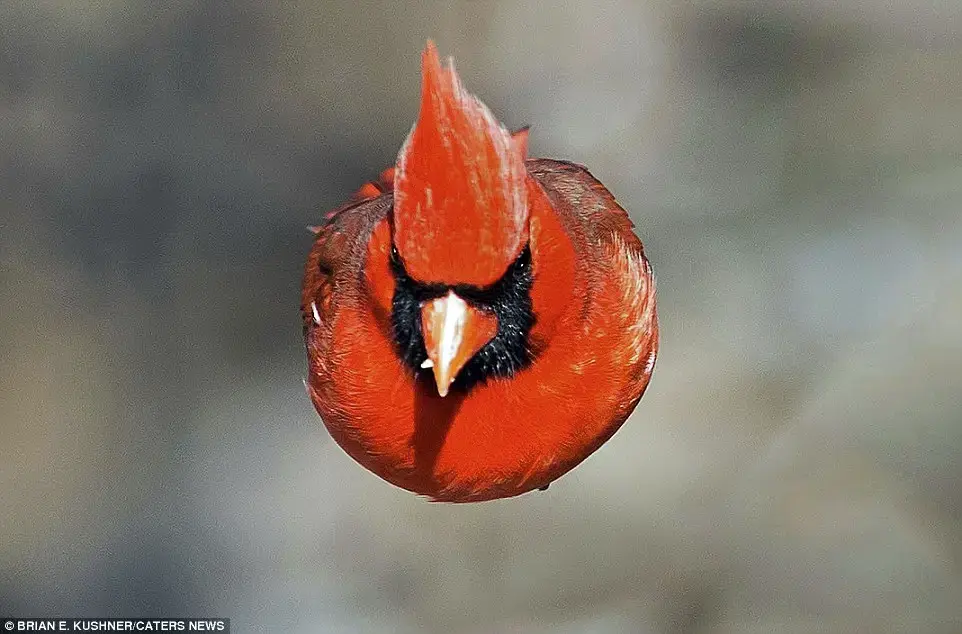I like the sand cat:

It looks like it gets distracted all the time and starts new side projects.
A loosely moderated place to ask open-ended questions
If your post meets the following criteria, it's welcome here!
Looking for support?
Looking for a community?
~Icon~ ~by~ ~@Double_[email protected]~
I like the sand cat:

It looks like it gets distracted all the time and starts new side projects.
Holy shit this is me ^^
Mine

The screaming Opossum

Pallas's cat
the body is round

I have used this phrase a lot, but in the last couple of years I’ve seen usage of this phrase by folks who aren’t Native Americans start to come under fire. I think it’s because it appropriates and makes light of Native American culture.
I think what and how it is used for or interpreted as should be a factor to determine whether it is appropriation of Native American culture.
I’m not a native english speaker, and often times the term in my mind can mean zodiac animals. I’m not saying they are the same thing. English is a common language, and people from other cultures may interpret the word differently.
Hence I sometimes wonder whether there are other cultures across the world that use similar terms (eg totem symbolism), or whether such term can mean different things to other cultures. A blanket ban of the specific combination of these two words in english based on ~~one~~ some cultures may seem unfair to others if this is true. If anyone knows or has issues with the logic, please correct me.
EDIT: see the discussion in the comments https://lemm.ee/comment/1954510
EDIT 2: per below comment, Native American shouldn’t be treated as 1 culture.
It's definitely not used with the same level of meaning in pop culture, so maybe we need to call it something else.
Zeitgeist Animal?
Which Native American tribe specifically? Native Americans aren't one single culture. Are you offended on behalf of someone you can't even name?
I'm going to answer this in good faith.
Not wanting to cause someone else discomfort or pain, is not about being "offended" on their behalf. We need to get away from this "offfence" paradigm and back to the human. We are all people. Let's treat each other with respect.
If you genuinely want to know "which tribe specifically, start here with the big picture:
Group totemism was traditionally common among peoples in Africa, India, Oceania (especially in Melanesia), North America, and parts of South America. These peoples include, among others, the Australian Aborigines, the African Pygmies, and various Native American peoples—most notably the Northwest Coast Indians (predominantly fishermen), California Indians, and Northeast Indians. Moreover, group totemism is represented in a distinctive form among the Ugrians and west Siberians (hunters and fishermen who also breed reindeer) as well as among tribes of herdsmen in north and Central Asia.
Individual totemism is widely disseminated. It is found not only among tribes of hunters and harvesters but also among farmers and herdsmen. Individual totemism is especially emphasized among the Australian Aborigines and the American Indians.
Cisco 2600 router.
“Lobster, because lobsters live for over one hundred years, are blue-blooded like aristocrats, and stay fertile all their lives”
That was a good movie!
Mark Wahlberg
Some kind of angry potato
Find your soul mate, Homer!

Just remember, if you're white, that's not your spirit animal, that's your fursona!
An octopus. Weird, inquisitive, and can hide when I don’t want attention.
I’d probably taste delicious when deep fried and battered.
In my mind, I'd probably like it to be something a bit noble. But my wife would probably say a Golden Retriever. All over the place energy that jumps between couch potato and hyperactive, pack/family oriented, and a bit dumdum. Can't say I totally disagree.
the_itsb = the Ill-Tempered Sea Bass, and though it's a batfish and not a sea bass, I've always thought this guy conveys the ill-tempered part beautifully.
Who I actually am as a person is a little more like some kind of crab. There's the strawberry crab, who is "small, brightly-colored ... known to be quite toxic," which sounds just like me without medication. 😂 And then there's the black-eyed hermit crab, who "often inhabits shells left by massive moon snails ... often covered with colorful pink anemone-like hydroids, making this critter even cuter."
nice lipstick on that first one
intercontinental nuclear ballistic missile bean launcher system
The finless porpoise

Manatees
I'd like to say penguin, because I love them; but my experience keeps pointing me to a deer, whether I agree or not. My wife's seems to be a bee, for whatever reason. Just weird, coincidental observations that really made us wonder. But c'est la vie, I'm cool with a deer if it is what it is.
But damn, do I love penguins
I think mine must be a cat. Because I don't care for cats. Or dogs, really.
a rat.
Cat
Grumpy Cat
“You‘re The Snake
The snake animal meaning is powerfully connected to life force and primal energy. In many cultures, it is revered as a powerful totem representing the source of life.
When the snake spirit animal appears in your life, it likely means that healing opportunities, change, important transitions, and increased energy are manifesting.”
I don’t really know how this spirit animal thing works, but that’s the answer I got from some online quiz. If it’s on the internet, it has to be true, right.
I have used this phrase a lot, but in the last couple of years I’ve seen usage of this phrase by folks who aren’t Native Americans start to come under fire. I think it’s because it appropriates and makes light of Native American culture.
While I’m not trying to be the woke police, I understand that saying this is a bit of a buzzkill in a lighthearted and fun post. I’m not here to stop you, but to give you info so you can make your own decisions.
Similar notions exist in numerous cultures. Sometimes we call them spirit animals, sometimes familiars, sometimes bond creatures, and so on. Anyone who says it's a "their culture" thing is by their own logic not being reverent to other cultures.
True. To give a few links: Witches had Familiar spirits in medieval times. There are Chinese zodiac signs that are supposed to give you certain character traits. And shamans have been a thing way, way before Columbus discovered america.
I think the idea belongs to every human culture since humans started domesticating animals.
Interesting, never really considered it like that, I’m Scottish so have heard it referenced in pop culture and such without really much thought of origins. I know that witches have familiars, shamans have animal spirits in their belief systems and many modern pagans revere wild animals too so it may be the word choice itself?
I agree it’s interesting - I tried digging into it this morning, and answers are all over the place. I think you’re right though, the specific word choice is what’s problematic.
Is it though? Often these days people like to white knight about cultural appropriation. Especially white people. This in itself, if unfounded, can be offensive. Sharing culture is has been immensely important in human history, and enriches cultures at large. If even a minority of a cultural has voiced it’s dissent on how another culture has been using an aspect the first culture however, that’s when there is a serious problem. I would say the only way to truly know is to ask Native Americans. Although as others have mentioned, this concept one is in a few different peoples, my point remains I think. It’s up to the culture who the concept belongs to to decide whether or not is being misused, corrupted, and/or callously and unfairly adopted, not privileged individuals who have nothing better to do than get a rush from taking umbrage. That all being said, it is a tricky thing. How we gonna go ask every culture if it’s okay to adopt this or that aspect?
ask every culture
even though I’m pretty sure that’s a rhetorical question, I’m just gonna answer anyway, that it’s not practical.
I think with the internet and all, cultures will interact, clash, sometimes merge, change, mutate. It’s really hard to keep track of everything. I believe that it’s important to keep this in mind, to continue learning while still maintaining sensitivity, empathy and tolerance towards one another.
In this context of language and appropriation, I believe people should be open to learn, but not necessarily expected to always know, about the contexts and use of a potential controversial choice of words or language. At the same time, we should be empathetic to each other, no one knows everything, so help each other instead of berating and isolating one another.
There may be some notions that are really specific to a very small minority. Simultaneously, similar concepts and ideas may arise independently across the world from different cultures throughout different times in history. Sometimes, they are “born” due to culture interactions as well. Due to such complexity, instead of being too defensive or offensive, maybe it’s better if we are a bit tolerable when we can. Don’t always assume the worst. Continue to educate ourselves and have patience to educate others.